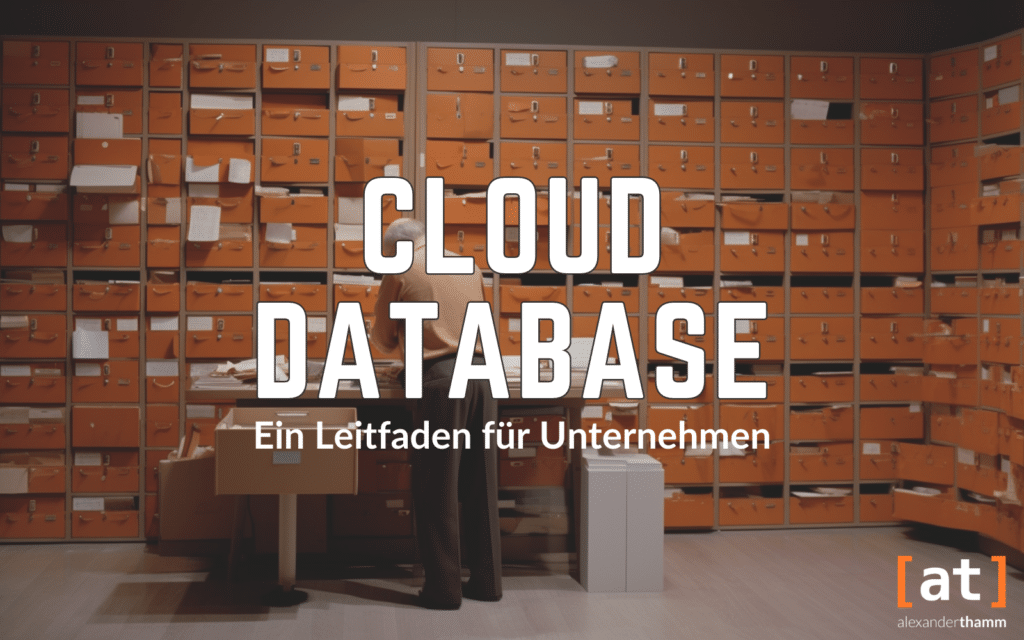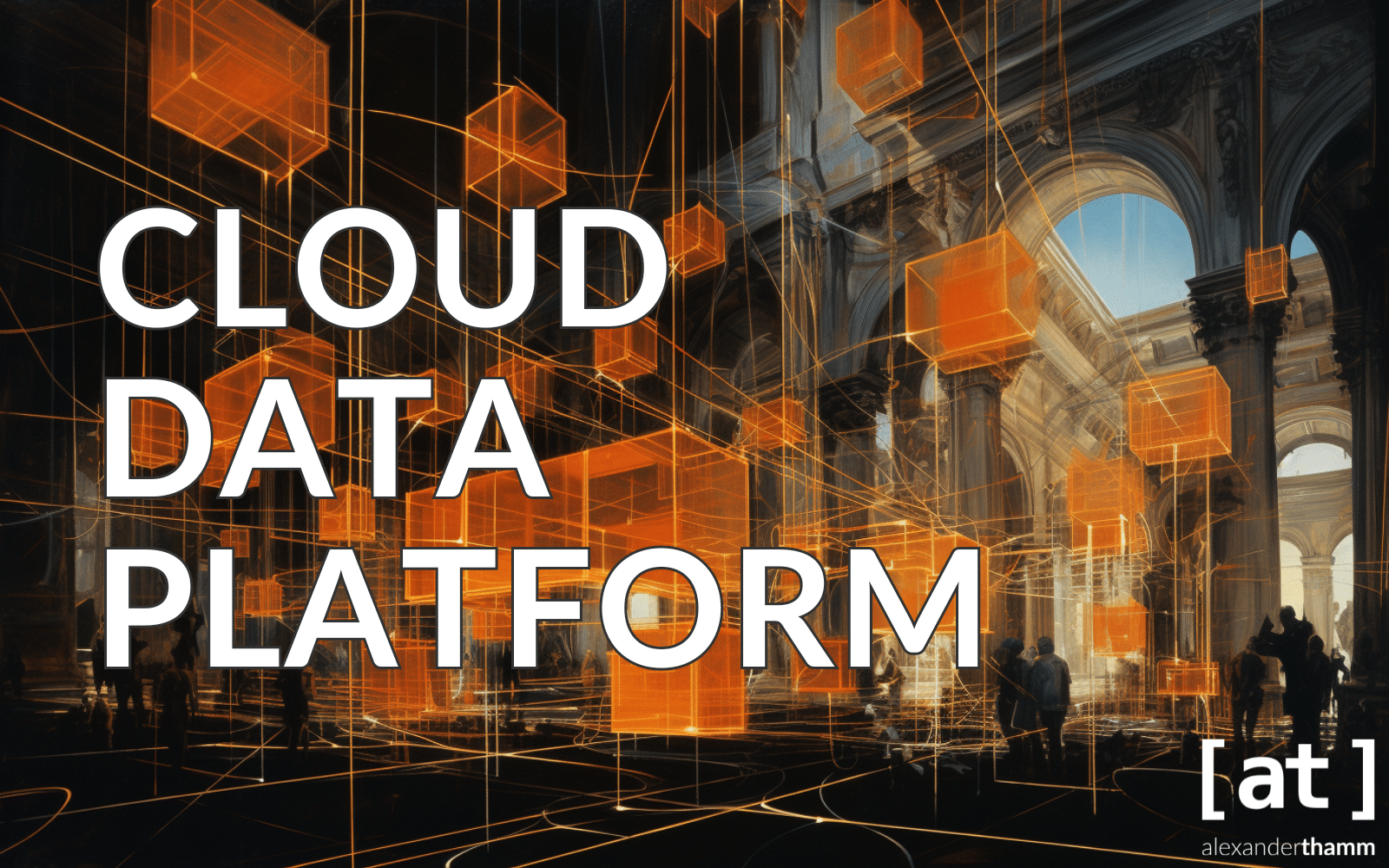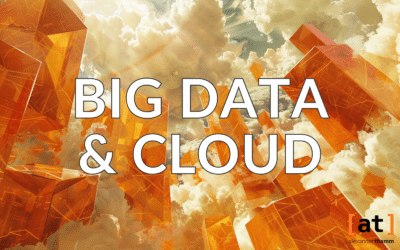In our modern world, where information serves as a catalyst for innovation and progress, a particularly dynamic concept has emerged in the technology industry: the cloud data platform. These platforms are at the centre of attention as they herald a new era in data management and analysis. But what constitutes a cloud data platform and how does it differ from conventional cloud databases?
The diversity and performance of cloud data platforms open doors to previously untapped possibilities. They are customised to different business requirements and therefore offer significant added value. In this article, we shed light on the essential aspects of cloud data platforms, clarify existing ambiguities and show how they are shaping the landscape of the modern business world.
Inhaltsverzeichnis
What is a cloud data platform?
A Cloud data platform is an advanced systemwhich was specially designed for this purpose, Data store and manage data from a variety of sources. These platforms enable companies to conveniently access the collected data and use it for their own purposes. The sources from which cloud data platforms obtain their information include Big data applications and Databases. They not only facilitate the processing of data, but also provide tools that allow companies to gain valuable insights from their data.
The backbone of these platforms is the Cloud computing. It enables the efficient analysis, management and processing of stored data by utilising the advantages of scalability and various cloud tools. The environment of a cloud data platform is characterised by its high flexibility and easy accessibility. It adapts seamlessly to the dynamic requirements of modern companies and offers a robust yet user-friendly solution for the complex world of data storage and analysis.

Cloud computing offers numerous advantages and functions for operational processes. Read all the relevant information about this technology in our introductory article:
What are the differences to a cloud database?
The differences between a cloud data platform and a Cloud database are recognisable both in terms of their functionality and their range of applications. One Cloud Data Platform offers a Comprehensive range of functionswhich was developed by the Data recording via Storage and Processing up to the Analysis is enough.
In comparison, the focus of a Cloud database primarily on a Part of this spectrumby focussing primarily on the Storage of structured data dedicated.
The cloud data platform impresses with its ability to process both structured and unstructured data. The cloud database, on the other hand, focusses on the storage and efficient retrieval of structured data. Its other functions include security aspects such as data backup, replication and indexing. Such databases are particularly useful in areas where fast access and efficient management of structured data is required, such as in CRM and content management systems.
Overall, we offer Cloud data platforms offer a wider range of services and features compared to cloud databases. This includes advanced functions such as machine learning and various visualisation tools. These tools facilitate the analysis and interpretation of data, enabling companies to make informed decisions based on complex data analyses. This makes cloud data platforms particularly suitable for companies that obtain their data from various sources and want to use it to gain in-depth insights.

Cloud databases in focus: A guide to functions, advantages and possible applications in modern corporate data management.
How is a cloud data platform architecture structured?
The architecture of a cloud data platform is a multi-faceted structure that is specifically designed to support companies in collecting, storing, processing and analysing data. This structure can be divided into different layers, each of which fulfils specific functions.
These layers include
- Data lineage: The origin and path of the data through the platform is traced here.
- Storage and computing: This level deals with the storage of data and the provision of computing power for its processing.
- Data security and audit logging: Ensures the security of data and logs its use and access.
- Data governance: Includes policies and practices for data management and use.
- Metadata and company glossary: Provide context and definitions for the data.
- Data catalogue and data search: Enable data to be found and understood.
- Data quality and trust in data: Focus on the integrity and reliability of the data.
The individual components of this architecture are flexible and can be separated from the cloud platforms. This enables companies not to be tied to the tools of a single provider, which leads to a more efficient use of resources. increased agility and better monitoring of data leads. Some providers deliberately separate the computing and storage components in order to increase efficiency.
Data is first fed in and cleansed using data pipes. Data is stored on two levels: "hot" data, which is accessed frequently, and "cold" data, which is used less frequently. Changes are first made in the faster in-memory tier and then copied to the slower cloud object memory. This structuring increases the performance of the platform and enables the business data to be analysed in greater depth during queries by accessing it specifically from the different storage tiers.

Data governance is the hand that controls data volumes, ensures security standards and makes sure that not every available flood of data ends up in your projects. Dive deeper into this concept in our article.
Data Governance: Fundamentals, Challenges and Solutions in Data Management
How powerful are cloud data platforms?
In today's business world, where flexibility and accessibility of data play a crucial role, cloud data platforms are a major innovation. These platforms enable companies to make the transition from local data centres to cloud solutions, allowing access to data at any time and from any location.
The performance of cloud data platforms is particularly evident in their ability to efficiently process both structured and unstructured data volumes. Thanks to the Scalability the Cloud infrastructure these platforms can be flexibly adapted to changing data or analysis requirements. They not only provide access to data, but also comprehensive overviews of queries and other processes, which increases transparency and control over data utilisation.
Another aspect of the performance of cloud data platforms is their Capacity for optimisation. They provide insight into CPU and memory utilisation, allowing companies to identify opportunities to improve their systems.
The Storage of data in cloud data platforms is also organised and structured. Data is stored in individual bundles that can be adjusted - i.e. increased or decreased - depending on requirements and utilisation. This type of structured storage enables more efficient working and optimised data storage, which improves the overall performance of the platforms and helps companies to make the best possible use of their data resources.

Cloud computing enables companies to use their IT resources more flexibly and cost-efficiently. The cloud architecture and infrastructure play a central role in this. Find out which aspects you need to pay attention to in our blog post:
Cloud Computing - Architecture & Infrastructure: Compactly explained
What types of cloud data platforms exist?
Cloud data platforms are designed in their diversity to fulfil different needs and requirements of companies. These platforms can mainly be categorised according to the services they offer:
- Data warehousing platformsThese provide a centralised repository for structured data and are ideal for queries that are geared towards analytical purposes. Companies can use these platforms to collect and analyse data from a variety of sources in order to make informed decisions.
- Data lake platformsSpecialised in processing large quantities of different data types - structured, unstructured and semi-structured data. Above all, they facilitate the structuring of raw data for various application areas.
- Data integration platformsThese enable a seamless and effective data flow within an organisation by connecting different data sources and systems. They increase the accuracy, availability and consistency of data.
- Data analysis platformsThese platforms focus on tools for collecting, processing and interpreting data to provide companies with deep insights into current trends and patterns.
- Data governance platformsThese are designed to ensure data quality, compliance and security. They guarantee that data is only accessible to authorised users and is managed correctly.
- Data management platformsThese platforms ensure data consistency and quality. They centralise the storage, maintenance and integration of data and help to reduce redundancies, which in turn makes decision-making more efficient.
What use cases do cloud data platforms have?
Cloud data platforms offer an impressive variety of applications that span different areas of data utilisation and analysis. The most important use cases include
- Creation of data lakesCloud data platforms enable the creation of so-called "Data Lakes". Extensive stocks of structured and unstructured data are stored here, which can be used for analysis purposes and machine learning. These data flakes can be accessed from anywhere and on any device, enabling companies to secure, analyse and visualise data centrally.
- Data warehousing: Companies use Data warehouses to store and manage your data in a structured database environment. These are particularly useful for analysing and reporting purposes, as they can merge data from different sources such as ERP or CRM systems.
- IoT analysisCloud Data Platforms offer access to IoT (Internet of Things) data. They collect and analyse data from IoT devices, enabling companies to gain deeper insights into their operations and make more informed decisions.
- Machine learningThese platforms are ideal for implementing machine learning models. They enable large amounts of data to be stored and analysed in order to draw conclusions and make predictions.
- Big data analysisCloud data platforms help to gain valuable insights when analysing large and complex data sets. These can, for example, support risk assessment or the more efficient utilisation of resources through well-founded decisions.
- Development of applicationsCloud data platforms facilitate the development of applications by providing frameworks and tools. Thanks to the scalability of the cloud, developments can be quickly adapted and expanded without the need for costly hardware.
- Business Intelligence: Companies can use Business intelligence tools create interactive, graphical reports from your data. These tools provide deep insights into market trends and operational processes.

A comprehensive look at business intelligence: how companies can make informed decisions and react quickly to market dynamics by analysing and visually processing data.
What cloud data platform services are available on the market?
The market for cloud data platform services is diverse and offers different solutions for the varied requirements of companies. Some of the best-known providers are
- SnowflakeThis service is characterised by its modern approach to data warehousing and analysis. Snowflake separates computing and storage capacity and places great emphasis on user-friendliness and scalability. The platform is particularly suitable for companies that want to manage and analyse large volumes of data in real time.
- Microsoft AzureMicrosoft's suite comprises various cloud data services, including Azure SQL Database for data management and Azure Data Lake Storage, which focuses on the storage of unstructured data.
- Amazon Web Services (AWS)AWS offers a wide range of cloud data platform services. Of particular note are the Apache Spark and Hadoop frameworks within the Amazon EMR, which are designed for processing large volumes of data.
- AvalancheThis platform focusses on user-friendliness and performance. Avalanche enables users to collect, process and analyse data efficiently. Despite its relative newness compared to other providers, Avalanche has established itself as a strong option.
- Google Cloud Platform (GCP)Google offers its own cloud data platform with GCP. Services such as Firestore, a NoSQL database for mobile, web and server applications, and BigQuery, a serverless data warehouse with fast queries, testify to the efficiency of Google's infrastructure.
Conclusion
The world of cloud data platforms is a dynamic and constantly evolving field that is shaping organisations in the digital era. These platforms are more than just storage solutions; they are versatile tools that enable data to be collected, stored, processed and analysed to gain valuable insights. From creating large-scale data lakes to efficiently managing IoT data, cloud data platforms offer customised solutions for a variety of use cases.
Providers such as Snowflake, Microsoft Azure, Amazon Web Services, Avalanche and Google Cloud Platform have shaped the landscape of this technology with their innovative services and functions. They enable companies to react flexibly to changing requirements and utilise the full potential of their data assets. These platforms are not only a tool for data management, but also a catalyst for growth and innovation in almost all industries.
In a world that is increasingly driven by data, cloud data platforms are essential to the success of any organisation. They provide the necessary infrastructure to thrive and progress in a data-centric future. The continuous development and improvement of these platforms will undoubtedly open up new horizons for the use of data and help organisations thrive in an increasingly complex and interconnected world.











0 Kommentare